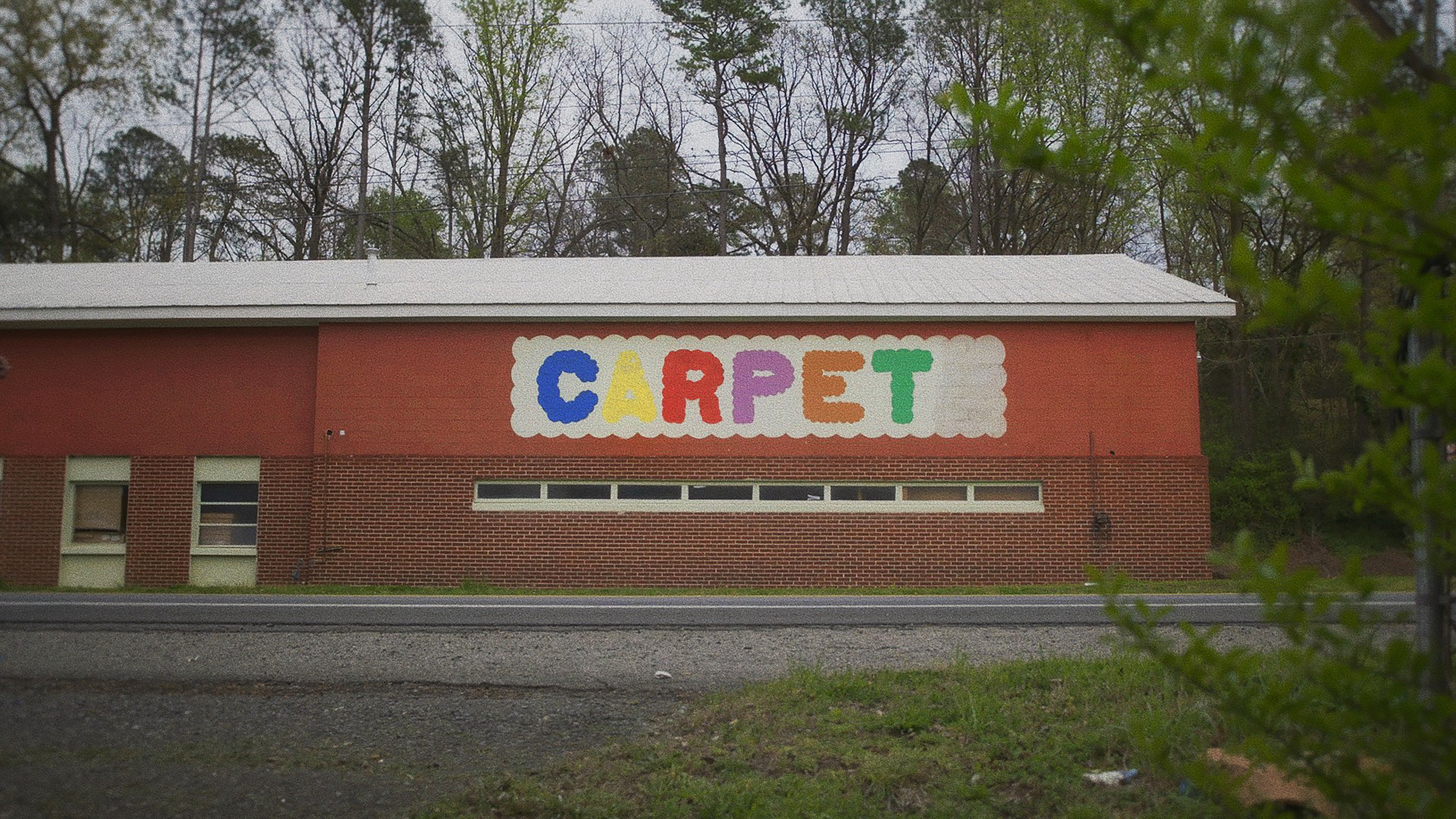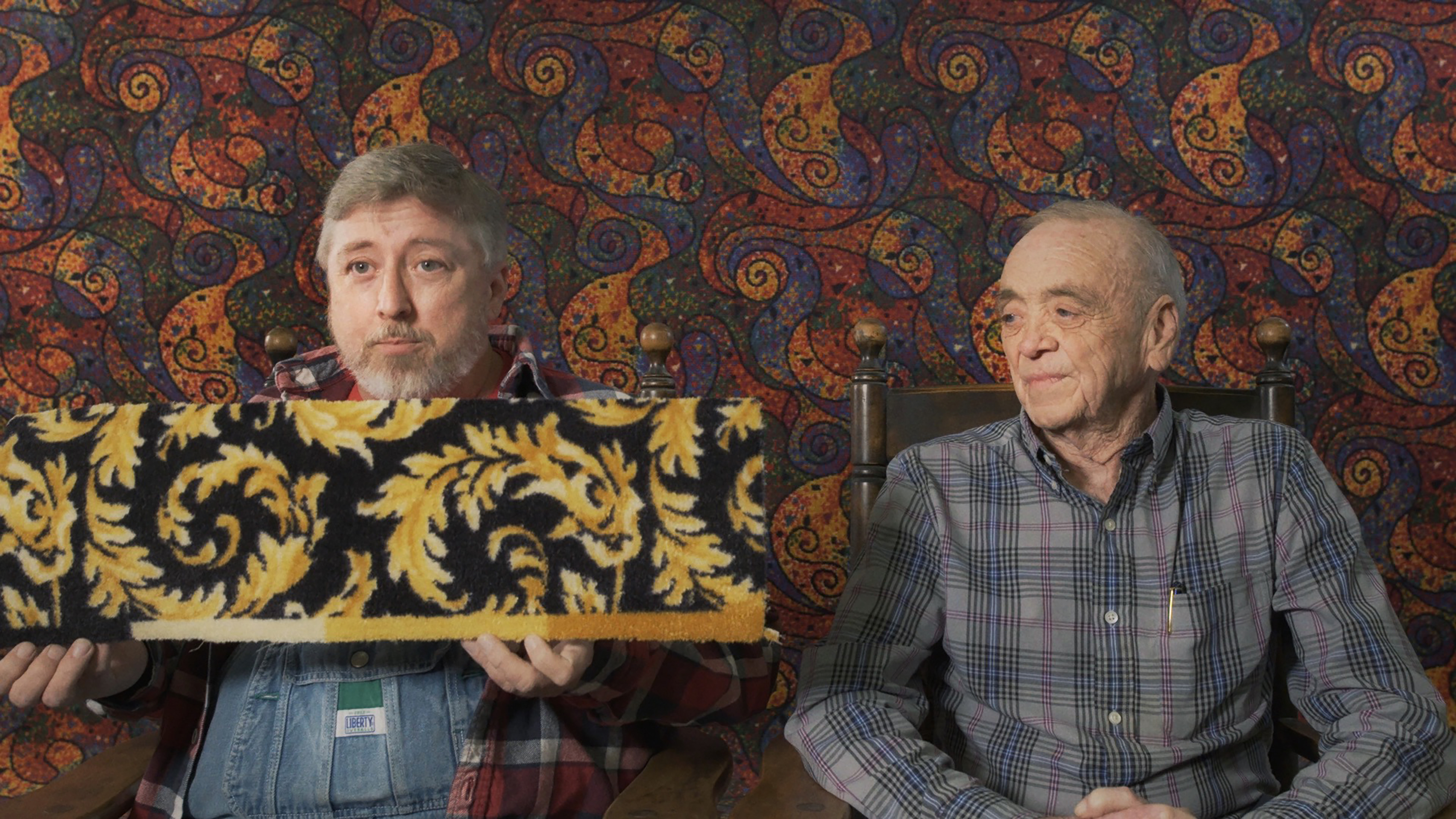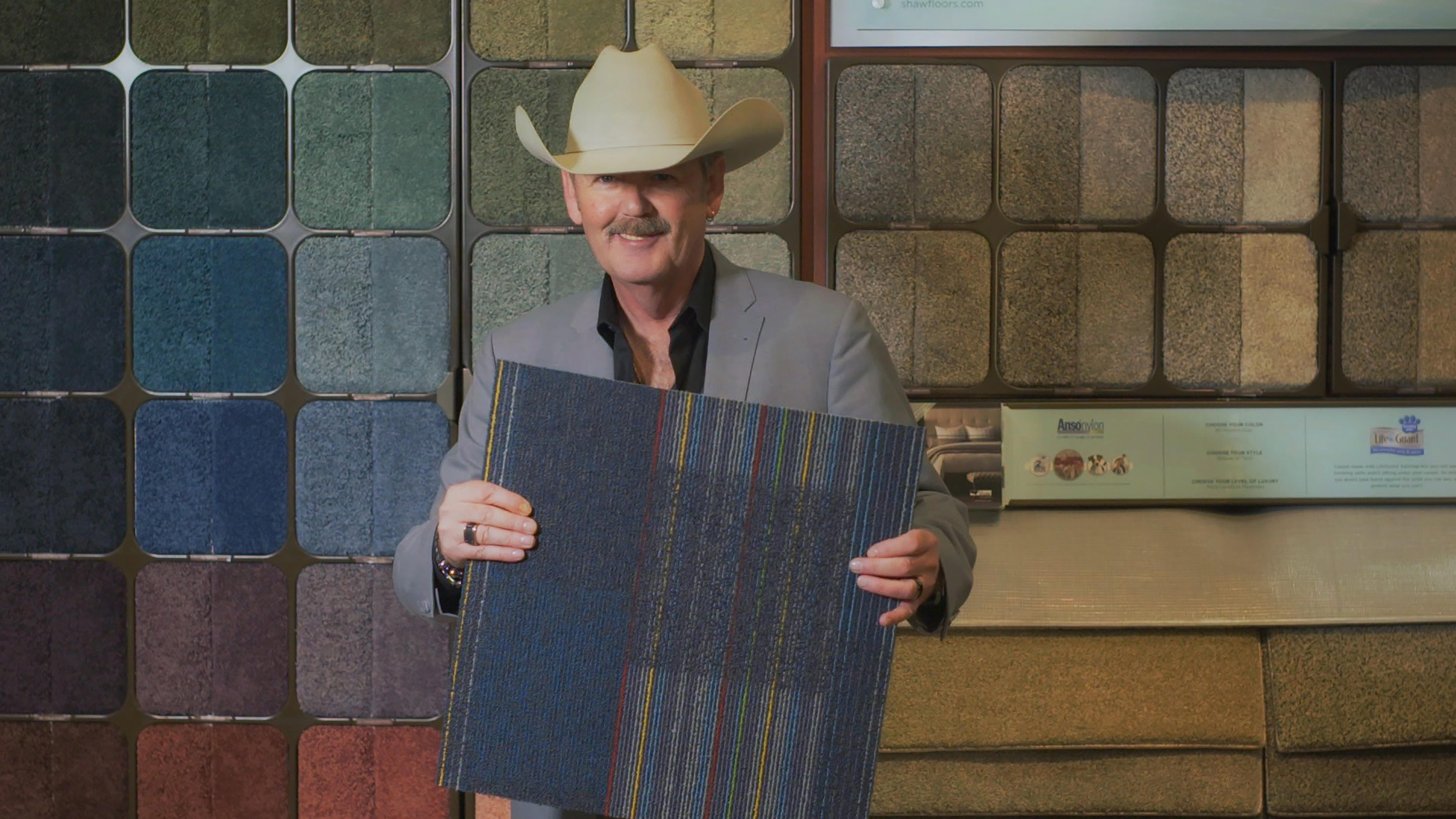Carpet Cowboys: What to Expect When You're Expecting Carpets
Review of Carpet Cowboys at Grand Illusion Cinema
Written by TeenTix Newsroom Writer Milo Miller and edited by Teen Editorial Staff Member Daphne Bunker

When you sit down in one of seventy seats in the Grand Illusion Cinema, you feel a sense of surreality, when the lights in that small theater dim and a film begins to play on that small screen, all while the Grand Illusion becomes larger than life. That surreality carries over to the screen when you watch a film as bizarre as Emily Mackenzie and Noah Collier’s documentary Carpet Cowboys. In the film, a collection of self-proclaimed cowboys and rugged entrepreneurs find disillusionment in the mystical world of carpet business, design, and production. Immediately, we are made aware that the film’s setting, northwest Georgia’s Dalton, is the “Carpet Capital of the World,” although, throughout the film’s runtime, the audience is never given a clue as to how it got to be that way or what such a title entails.
We do, however, learn about the life and times of one Roderick James, codename “The Scottish Cowboy.” When he isn’t writing jingles for Kid Cool’s patented glue or planning to relocate to the Philippines to be with his wife—a wife whose role is reduced to bystander because the film refuses to include any information that does not involve indulging James—he tells the audience about how he’s been in the Dalton carpet industry for some thirty-odd years.
What does James do within that industry? What is his job, and what does it require of him? What are some of the basics of carpet-making, explained by one of the insiders in the field? These are all questions we are left with by the end of James’s story, following him from his roommateship with a musician to the open oceans of the Philippines, even though you can’t put carpets on the seafloor.

In terms of building the audience’s interest in the lucrative, fascinating world of carpet-making, Carpet Cowboys deftly succeeds through sharp, resounding cinematography and clever, sometimes jarring editing. But it is completely devoid of any kind of in-depth knowledge about the industry it romanticizes, the kind of knowledge that people want to have gained when they walk away from a documentary. Carpet Cowboys only does half the job, so while it sure is stylish and tricks its audience into thinking it is “intellectual,” the documentarians skimp out on educating us on carpets. In this way, the film is more about the cowboys than the carpets—since for a film about the carpet industry, there sure are lots of rock collectors, glue-makers, smoking swimmers, and jingle writers. Carpet Cowboys thinks of itself as a smart film, but when it comes to the payoff, it delivers nothing.
That said, there is some effort to balance the negative aspects of the film with style and humor. Collier’s cinematography certainly falls into the more recent category of extremely well-shot films, documentary or otherwise. We are shown that the town of Dalton is not important just for its carpet-making expertise but for the kindly old cowboys and the little stories that would not be on this side of the camera in another documentary. One of the dudes knocks his cup off the table; he doesn’t notice, and only keeps on talking as the camera tilts down so we can see the cup. Ha ha. Although shallow, these cutesy aspects of the film give it a much lighter tone and a bigger world to work within. It sets a positive expectation for what the rest of the film will bring and, although it doesn’t always deliver, this part of the film is fun. An almost fantastical, cartoonish version of the world.
Actually, the film’s content might even have been more believable had it been completely fictionalized. The film focused on such wacky people—i.e., the man who has retired from carpets after praying extensively and found his true calling: walking along a river to find rocks that look like faces. No matter how much he has to extend his disbelief to see these stony companions, the film makes it clear that he is happier than he was in carpets. These disparate distractions, seemingly unbothered by the film’s premise, raise a lot of questions. Why both 15-year-old Tripp Phillips’s blossoming enterprise of Le-Glue and the minute-long clip of his cutesy, charming Shark Tank appearance are included in the story is a mystery, as is the last twenty-some minutes of the film detailing how the Scottish Cowboy became the Scottish Cowboy in the Philippines. These things simply have nothing to do with carpets.

Perhaps the single best, most interesting piece of the film is the extended shots of the carpet durability testers—those brave expeditioners who spend their time walking around a ring formed from assorted carpet swatches. In order to complete this complex experiment, they must accumulate ten thousand steps so that the durability of the carpet can be examined. We asked for a glimpse inside the carpet industry, and this is what we were given. It is indeed amusing, but it is also the prime example of Carpet Cowboys’s focus on style and humor and the generally fabricated “wackiness” of Dalton, Georgia. When the documentary’s visual flair necessitates robotic shots of churning machines, seemingly held together by forests of thread, we have a machinery montage. But unless actual education is called for by the documentary’s narrative, the film seems content to descend back into the primordial soup of its incoherence.
This film is not a study of society or an allegory for economics and imperialism; carpets, more specifically the carpet manufacturing industry of Dalton, Georgia, has not shaped our world as we know it today, and the people who get their ten thousand steps in walking on circles to test carpet durability are not the front line workers to whom we owe our lives and well-being. Contrary to the documentary’s constant affirmations that carpets are life, they are actually just carpets. In its quest to elevate the mundane, Carpet Cowboys has driven itself over the cliffs of coherence. And it’s fine to love carpets. Everybody walks on them every single day. It’s just that Carpet Cowboys love the concept of carpets more than the carpets themselves.

Lead Photo Credit: Roderick James in a still image from Carpet Cowboys (2023) written and directed by Emily Mackenzie and Noah Collier / Photos courtesy of Memory Production
The TeenTix Newsroom is a group of teen writers led by the Teen Editorial Staff. For each review, Newsroom writers work individually with a teen editor to polish their writing for publication. The Teen Editorial Staff is made up of 5 teens who curate the review portion of the TeenTix blog. More information about the Teen Editorial Staff can be found HERE.
The TeenTix Press Corps promotes critical thinking, communication, and information literacy through criticism and journalism practice for teens. For more information about the Press Corps program see HERE.

